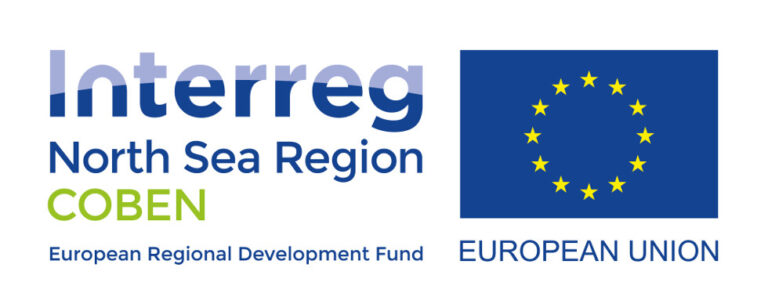Project focus
The COBEN initiative is the next stage of the province’s “Energy Landscapes” strategy designed to promote a process towards energy self-sufficiency and climate neutrality.
During the first phase (2016-2020) the province of East-Flanders focused with the COBEN project on residual heat and the production of green heat. The geographical focus was the city of Eeklo so that it can evolve from a wind landscape to an energy landscape. Here a prototype of a community co-owned large-scale heat network is developed. Key activities included:
- Facilitate the build-up of a consortium that allows the local neighbourhood, citizens, and stakeholders to take on ownership of sustainable energy production.
- Develop a “heat transition plan” with the community of Eeklo. The plan defines for every neighbourhood the most efficient ¨residential green heating solution. It is also an action plan that proposes measures to get there.
The second phase (2020-2022) will focus on community consortia in the wind sector in East-Flanders. The province selects pilot cases mainly in the south of its territory. COBEN wants to foster wind projects which are (partially) owned by the local community. Key activities are:
- Implementation of community consortia in large-scale wind projects.
- Support of a policy/regulatory framework and instruments to community energy projects.
Targeted outcomes
In Eeklo, there is huge potential for rest heat, coming from a household waste incinerator. This plant can heat the entire city of Eeklo via a heating network. A local consortium with Veolia and the energy cooperative Ecopower as most important shareholders is finally in place. A heat network masterplan is adopted by the city council. The unique cooperation between Veolia and Ecopower will be translated to other projects by Veolia and Ecopower themselves.
Together with this masterplan COBEN developed with the citizens a long-term heat-plan for their city. Based on data on housing stock, density, infrastructure, demography and others, the community deliberated on what renewable heating solution is the most efficient in their vicinity. This plan is adopted by the city council in June 2020. This approach on local energy planning is one of the most promising policy instruments to support the energy transition in private households.
In the second phase COBEN wants to uptake civic energy in large-scale wind projects. In order to professionalize the civic energy wind sector, the community organisations are in a need for viable wind projects. Space in Flanders is scarce and the environmental conditions are always challenging. Mostly all of the feasible wind zones in the province are under private option contracts. In this context, COBEN wants to introduce civic energy in the Belgian wind sector by project initiation on public land, by developing a regulatory framework and policy instruments in cooperation with the local administrations and Flemish level.
Community Benefits
- Climate change mitigation at municipal level
- Reduced energy costs for enrolled citizens
- Long-term support base for the energy transition
- Community control over environmental effects (e.g. sound, light,..)

